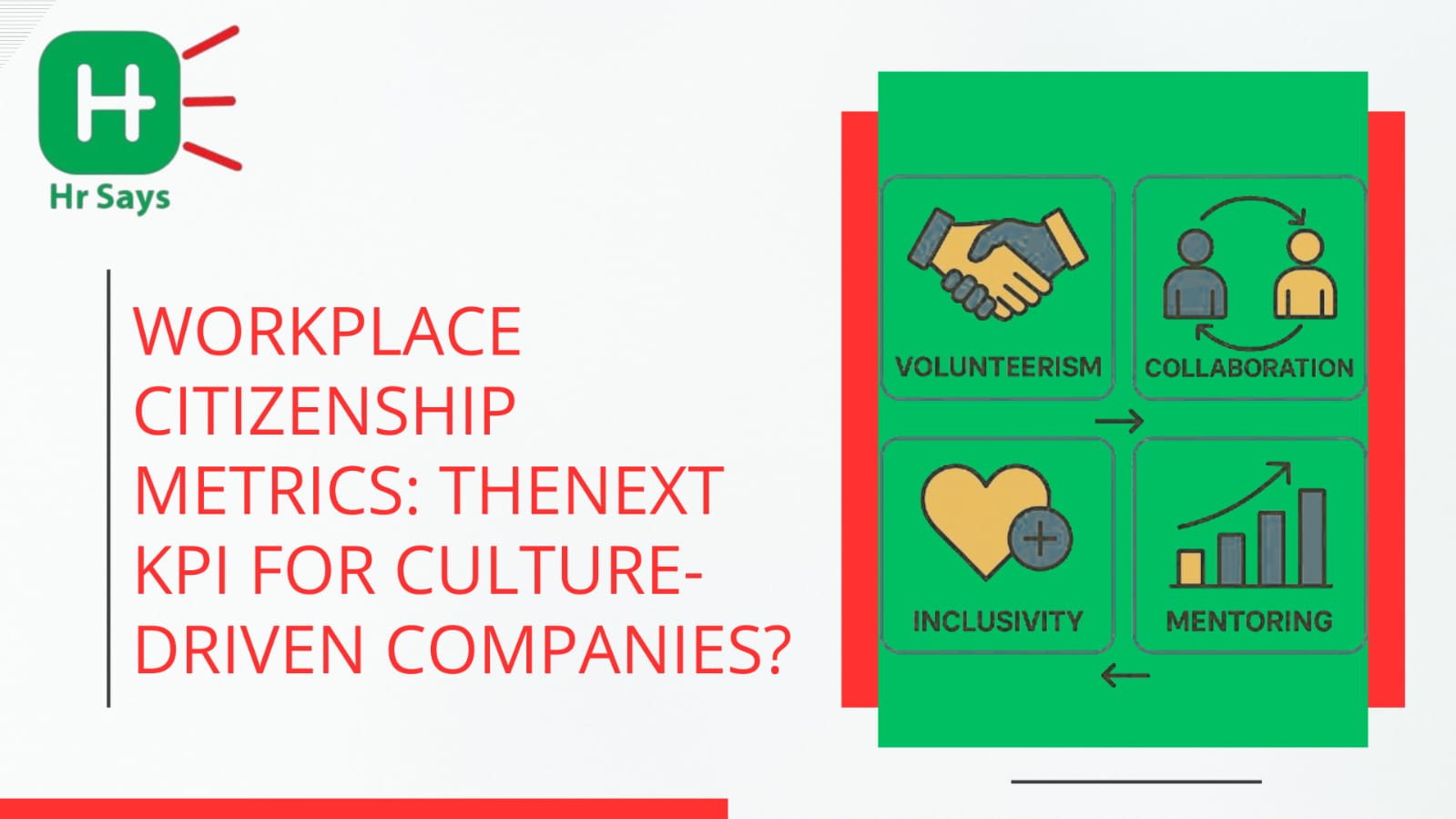What does a healthy workplace really look like?
It’s not always visible. Not in reports. Not in headlines. Culture used to mean happy hours and team lunches. Now, it means how people show up for each other—especially when no one’s watching.
And that’s where workplace citizenship comes in.
The Rise of Invisible Effort
A good culture doesn’t build itself. It’s shaped in moments. Quiet ones. The ones that don’t go on KPI dashboards. Like helping a new teammate. Or fixing a broken system—because it’s the right thing to do.
These aren’t job descriptions. They’re behaviors. And they matter.
But can they be measured?
What Is Workplace Citizenship?
It refers to the voluntary, positive actions people take that support the team, culture, and company—without being asked. These are not mandatory tasks. But they show commitment beyond role.
Some signs:
● Staying late to help on a project that isn’t yours
● Offering emotional support to a stressed coworker
● Sharing knowledge without being told
● Keeping morale steady during tough times
● Raising concerns before they turn into issues
It’s easy to overlook these. But their absence is felt.
Why Companies Are Paying Attention
Traditional KPIs track performance. Not behavior. But without strong behavior, performance
breaks down quietly. People disengage. Morale slips. Silos grow. And no perk can fix that.
So, culture-first companies are shifting. They’re asking:
● Who uplifts the team?
● Who builds bridges across departments?
● Who makes others better?
These questions aren’t fluffy. They uncover hidden leaders. And they predict team resilience.
But Can It Be Tracked?
Not like sales or attendance. But yes, patterns can be seen.
Some methods:
● Peer recognition platforms
● Anonymous feedback loops
● Culture health scores in exit interviews
● 360-degree reviews that include team citizenship
● Manager check-ins that track support behaviors
None of these are perfect. But they start the conversation. And that’s the point.
Tone Check: Not Another Trend
This isn't about ranking “nice” people. Or adding pressure to be everywhere, always. The goal is
not to make kindness a KPI. It’s to value it—consistently, quietly, honestly.
Good workplace citizens can burn out if they’re unseen. Toxic stars often go unchecked because
they “deliver.” That imbalance erodes culture.
Citizenship metrics won’t fix culture overnight. But they’ll show you where it’s cracking.
Conclusion
Workplace citizenship won’t show up on a balance sheet. But it shows up every day—in behavior, trust, and team strength. It’s the signal under the noise. Maybe it’s time we start tracking it—not to reward, not to punish—but to notice.
Sometimes, that’s enough.

 Perks and pulse surveys are no longer sufficient indicators of workplace culture. A quiet shift is happening. One where behavior, not benefits, defines the real health of a team. Is “workplace citizenship” the next metric worth tracking?
Perks and pulse surveys are no longer sufficient indicators of workplace culture. A quiet shift is happening. One where behavior, not benefits, defines the real health of a team. Is “workplace citizenship” the next metric worth tracking?








.jpeg)
.jpeg)

.jpeg)





.jpeg)



.jpeg)

.jpeg)



